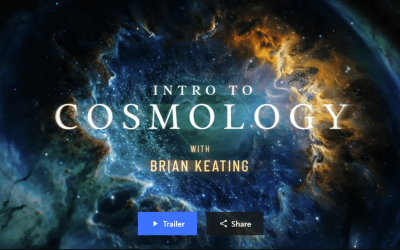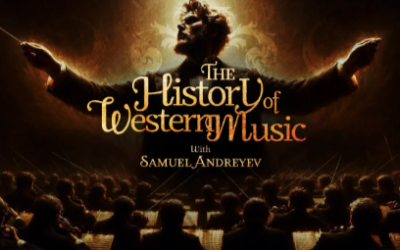Explore the nature, history, and contemporary manifestations of major political ideologies, including liberalism, conservatism, socialism, fascism, nationalism, feminism, and anti-racism.
File Size: 4.984 GB.
Format File: 8 MP4, 8 SRT, 9 TXT.
Peterson Academy – Eric Kaufmann – Political Ideologies

Dr. Eric Kaufmann
Political Scientist
In Political Ideologies, an eight-hour course, Dr. Kaufmann explores the nature, history, and contemporary manifestations of major political ideologies, including liberalism, conservatism, socialism, fascism, nationalism, feminism, and anti-racism. We examine the core beliefs, intellectual origins, and historical development of each ideology, highlighting their complex relationships, internal tensions, and psychological underpinnings. The course emphasizes the multidimensional nature of ideological positions and the increasing importance of cultural dimensions in contemporary Western politics, concluding with a call for open dialogue in navigating the challenges posed by diverse ideological perspectives.
Lectures
1. Ideologies
In our first lecture, we explore the nature and role of political ideologies, examining their relationship to political science, political theory, and the psychological foundations that shape individuals’ receptivity to different ideological perspectives. Dr. Kaufmann explains that ideologies are characterized by views on how the world works, how it ought to be, and the means to bridge the gap between the two. Positions on issues are often derived based on emotional and affective attachments rather than strict logical consistency. The lecture concludes by emphasizing the multidimensional nature of ideological positions and the increasing importance of cultural dimensions in contemporary Western politics.
2. Liberalism
In lecture two, we delve into the fundamentals of liberalism as a political ideology, exploring its core beliefs, historical development, and variations across different societies. The lecture examines the complex relationship between liberalism and democracy, highlighting their overlapping principles and potential tensions, and discusses the challenges of fostering liberal values in diverse cultural contexts.
3. Conservatism
In lecture three, we investigate the fundamentals of conservatism, exploring its historical evolution, key principles, and contemporary manifestations. We examine conservatism’s emphasis on social order, incremental change, and the wisdom of tradition, contrasting it with liberalism’s focus on individual rights and radical change. The lecture also addresses the psychological underpinnings of conservative ideology, highlighting the role of personality traits and moral intuitions in shaping political preferences.
4. Socialism
In lecture four, we jump into the history and evolution of socialism, exploring its core principles of equality and egalitarianism, and examining various forms it has taken, from utopian experiments and state-centered communism to reformist social democracy and the cultural left. Dr. Kaufmann traces socialism’s trajectory from its emergence during the Industrial Revolution to its challenges in the face of rising inequality and shifting political landscapes in the 21st century, highlighting the ongoing debates and tensions within the socialist tradition.
5. Fascism
In lecture five, we explore the complex ideology of fascism, focusing on its historical manifestations in Italy under Mussolini and in Germany under Hitler. The lecture zooms into the intellectual origins of fascism, its key features such as nationalism, militarism, and the rejection of liberal democracy, and the differences between Italian and German fascism. Dr. Kaufmann also addresses the potential explanations for the rise of fascism in the interwar period and draws comparisons to contemporary far-right and populist movements.
6. Nationalism
In lecture six, we are introduced to the complex topic of nationalism, exploring its definitions, theories, and manifestations in the modern world. We examine the distinctions between states, ethnic groups, and nations, highlighting the imperfect overlap between political and cultural boundaries as a key driver of nationalist movements. The lecture also discusses the role of modernity in the rise of nations and the competing theories of ethnosymbolism and modernism in explaining their emergence.
7. Feminism
In lecture seven, we inquire into the history and various strands of feminism, from the first-wave liberal feminism focused on equal rights to the more radical second and third-wave feminisms influenced by social constructionist and postmodernist thought. The lecture highlights the tensions between different feminist perspectives, such as the divide between those advocating for androgyny and those emphasizing essential differences between men and women, and how these debates manifest in contemporary issues like the rights of transgender individuals.
8. Anti-Racism
In our eighth and final lecture, we explore the ideology of anti-racism, tracing its evolution from a liberal movement focused on equal rights to a more radical, activist-oriented approach influenced by critical race theory. Dr. Kaufmann examines the intellectual origins, key arguments, and criticisms of critical race theory, highlighting the ongoing debate between proponents of colorblindness and those advocating for race-conscious policies to address persistent racial inequalities. Dr. Kaufmann concludes by emphasizing the need for open dialogue in society.
Course Features
- Lectures 0
- Quizzes 0
- Duration 10 weeks
- Skill level All levels
- Language English
- Students 125
- Assessments Yes













